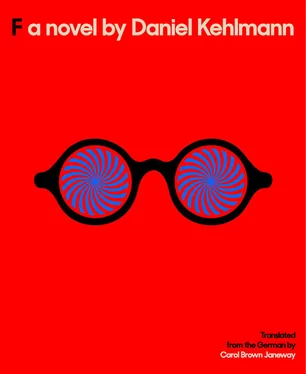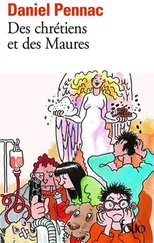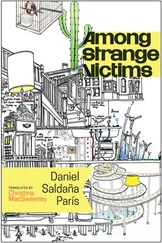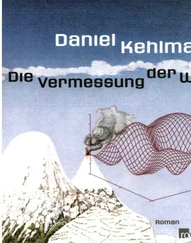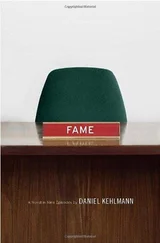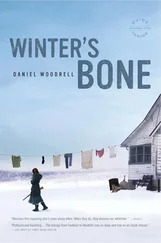“Hit it!” Georg handed her the bow. Over on the other side of the garden an arrow was embedded, quivering, in the target. “But careful, they’re very pointed!”
For a while they took turns shooting. Although it wasn’t a large bow, it was hard to pull; sometimes Marie hit the target, but more often it went wide. Georg had more practice. Her fingers were soon hurting from the bowstring.
Lena came by, climbed onto the fence, and watched. Her mother had let her go out for an hour. A man in an expensive leather jacket had come, she said, and had brought her chocolate.
Georg shot and scored. Marie shot and didn’t score. Georg shot and didn’t score, Marie shot and didn’t score, Georg shot and didn’t score, Marie shot and scored, a window was thrown open in the house next door, and a woman called over that she hoped these weren’t pointed arrows. All three of them swore they weren’t.
Gradually the gathering dusk made it hard to aim. The tree seemed bigger than before, but its contours were getting blurred, and it became more difficult to focus on it. Marie aimed one more time and the taut bow trembled, because her arm was already exhausted. She held her breath. The moment stretched out and stretched out, as if she could stop time with the bow. And still it stretched out. Then she shot. The arrow drew its path in the half-light, brushed the trunk, and vanished into the grass.
She said goodbye to Lena and Georg and went across the street. How come evenings smelled different from mornings? Even noon had its own particular smell. The shadow of a bird flew up out of a bush and she jerked back: a fluttering, a cawing and swirling, and it was above her head, already gone into the upper air. She tipped her head back. If Ivan was really dead, then he was up there too now, and the clouds wouldn’t obstruct his view, because the dead could see through everything.
The gravel path crunched under her shoes. Through the kitchen window she saw Ligurna stirring a pot, with the phone clamped between her cheek and her shoulder. The window was open, it would have been easy to listen in. But it usually wasn’t worth the effort; grown-ups rarely talked about anything interesting. Should she climb the tree again? Not as far as the roof, she didn’t dare do that on her own, but maybe as far as the study window? But then this seemed too dangerous as well. It was hard to see the branches in the dark, you could fall, and if unexpectedly a witch was sitting in the tree, you’d be helplessly in her power.
She went through the hall and up the stairs to the dining room. Her plate was already waiting for her: a piece of brown-red meat with some sauce, rice, a little mound of peas, and a glass bowl of pudding on the side. She touched the meat. It felt warm, squishy, and stringy, alive and dead at the same time. She opened the window and threw it out. She did that a lot. An animal would get it outside; at least it had never happened that food she’d thrown out in the evening was still there the next morning. She was never allowed to leave anything on her plate. If she failed to eat something twice in a row, Ligurna reported it to Mama, who then came and took her hand and asked if she was worried about something, or stressed, or if she had something she didn’t want to tell her.
Of course she had, because it felt good to have secrets. Mama knew nothing about the money that Marie had hidden in the nursery: three hundred and twenty euros, folded and squashed flat under the foot of her bed. Part of it was from her pocket money, and part of it from Grandfather’s wallet, which he always left lying around carelessly in the hall. It was important never to take too much, twenty at the most, never a fifty. As soon as a fifty went missing, the grown-ups noticed. They never missed smaller amounts. Mama also didn’t know that the brooch she’d been hunting for for so long was buried next to the apple tree; Marie and Lena had been playing Treasure Hunt and then couldn’t find the place again. Nor did she know that Marie had already forged her signature on excuse notes to her teacher twice, so that she could go fishing with Georg. Unfortunately they hadn’t caught any fish, because neither of them could bring themselves to stick a worm on the hook.
Besides there was so much Mama didn’t know about this house. Some things you just couldn’t explain to her.
Two months ago Marie had come home from school, set down her bag, and lain down on her back on the carpet, to listen to the rain — sometimes she’d lifted up her hands, closed one eye, and looked at the outlines of her fingers against the white of the ceiling. She had called Lena and Georg, but neither of them was at home, then she tried Natalie, who already had her own phone, but she hadn’t answered either. So she’d gone up to the top floor. There was a whole room full of empty suitcases up there; in earlier times Marie could spend hours just opening and closing them, loving being able to get into them and sit down, or climb from one into the next, but when you’d turned eleven, the excitement wore off.
In the room next door were cupboards with bed linens, hand towels, and all sorts of embroidered stuff; she’d locked herself in there and listened for some time to the drumming of the rain on the roof. Then she’d gone out into the hallway again and opened the door to the little bedroom next door. In it were a table and a chair; the wallpaper was ancient and had bleached-out brownish rectangles on it. The window was dirty; Ligurna obviously never cleaned in here. Marie had actually wanted to go in, but then she’d closed the door carefully and gone back downstairs.
Only when she was back in her room with the desk lamp switched on and her arithmetic notebook open did she turn ice cold with fright. There had been someone sitting at the table — hunched forward, his head turned toward the door and propped up on his elbows, hands pushed deep into his hair. She’d seen, but hadn’t been able to take it in at first; only in her memory did it become clear. The one thing she couldn’t recapture was the face. How could you explain something like that to your parents? Not even Ligurna would have believed it.
She ate the peas, the rice, and the pudding. Then went to Mama’s door, knocked, and walked in.
“Why don’t you knock?” Mama was lying on the bed learning her script. “Well, come here and sit down. Will you help me run lines?” She held out the sheets of paper to Marie.
There were only three pages. The first one went:
7/4, INTERIOR, DAYTIME — ELKE’S APARTMENT
Elke and Jens next to each other at the table.
ELKE
It can’t go on like this, Jens.
Jens, looking worried, shakes his head.
ELKE
You know it and I know it.
JENS
And Holger knows it too.
ELKE
Don’t talk about Holger.
JENS
How am I supposed not to talk about him? He’s between us.
ELKE
He’s my husband. The father of my children.
JENS
And what am I?
Elke looks him in the eye.
ELKE
You’re everything, Jens.
“Elke is full of contradictions,” said Mama. “Sometimes I feel close to her, then she’s a total stranger again.”
“Why does the world exist?” asked Marie.
“Elke wants to be free. That’s the most important thing to her. But she also knows she’s responsible. She’s trying to live this contradiction.”
“God made it, but where did God come from? Did He make Himself?”
“Did I already tell you who’s playing Jens?”
“When people say God made everything, that’s not an explanation. Why does something exist?”
“Why does something exist?”
“Yes, why?”
“Mirso Kapus.”
“What?”
“That should be ‘Excuse me?’ Mirso Kapus is playing the lead. You know him from TV.”
Читать дальше
